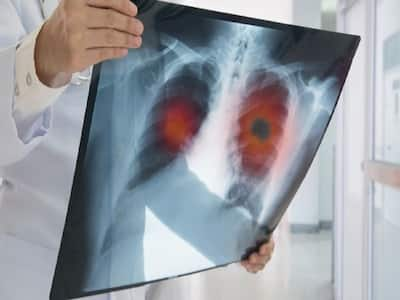
Lung Cancer In Non-Smokers: Comprehending A Different Cohort.
World Lung Cancer Day 2023: Risk factors like cigarette smoking, tobacco chewing, second-hand smoke, radon, air pollution and asbestos exposure can cause lung cancer. Non-smokers getting lung cancer is on the rise. Dr Gopi Krishna Yedlapati, Sr. Consultant Interventional Pulmonologist, Yashoda Hospitals, Hyderabad, shares the common reasons for non-smokers falling prey to lung cancer are chewing tobacco, second-hand smoke, family history of lung cancer, radon gas exposure from household equipment, wood smoke exposure in rural areas, air pollution in urban areas and occupational exposure like silica dust, asbestos etc.,
In India
Lung cancer was estimated to be 1,03,000 cases in 2022 and featured in the top 5 leading sites for both males and females. Lung cancer has increased by 5 per cent in the last two years, as per the Government of India. The symptoms of lung cancer in smokers and non-smokers are cough followed by sputum production with or without blood expectoration, chest pain, breathlessness, and generalised asthenia.
Lung Cancer Screening
A lung cancer screening check-up is advised whenever there is a suspicion of lung cancer in non-smokers. Non-smokers with lung cancer may have DNA mutations. Lung cancer screening by a low-dose CT scan usually outweighs the possible benefits versus the harm caused by radiation exposure. The types of lung cancer that non-smokers tend to get usually have a better prognosis than smokers because the gene mutation and the targeted therapy are doing wonders.
Lung Cancer Diagnosis
The most common lung cancer diagnosed in non-smokers is adenocarcinoma, which usually affects the mucus-producing cells that line the airways. The other difference is that the tumour grows slowly in non-smokers and is less likely to metastasize to other body parts. If diagnosed early, the best treatment we can offer for non-smokers lung cancer is by surgery, removing the affected lung tissue. Non-smokers tolerate surgery better because they have better lung functions. With the advancements in surgical techniques, VIDEO ASSISTED THORACOSCOPY SURGERY ( VATS ) and ROBOTIC VATS in experienced hands give near-total treatment. Regarding medical management, a wide range of therapies are available depending on the type of lung cancer.
Targeted Therapies
They are a novel form of therapy which may be targeted to kill specific cancer cells only sparing the normal lung tissue, which can be decided after the genomic mutation analysis of that lung cancer tissue. Non-smokers who don’t have the gene mutations may be given injectable chemotherapy. Much advancement has happened even in injectable cancer drugs with fewer side effects to the patient.
window.addEventListener(‘load’, (event) => {
$(‘#commentbtn’).on(“click”,function(){
(function(d, s, id) { var js, fjs = d.getElementsByTagName(s)[0]; if (d.getElementById(id)) return; js = d.createElement(s); js.id = id; js.src = “//connect.facebook.net/en_US/sdk.js#xfbml=1&version=v2.3”; fjs.parentNode.insertBefore(js, fjs);}(document, ‘script’, ‘facebook-jssdk’));
$(“.cmntbox”).toggle();
});
});








